 The hotel industry, along with the entire travel industry, has not been immune to the global economic downturn. As a result, many suppliers in our field are taking a look at the strategies they employ to see how they can optimise performance in order to increase revenues and get closer to full occupancy.
The hotel industry, along with the entire travel industry, has not been immune to the global economic downturn. As a result, many suppliers in our field are taking a look at the strategies they employ to see how they can optimise performance in order to increase revenues and get closer to full occupancy.
For hotels, this means going beyond traditional booking outlets in an attempt to drive sales, with a rise in the use of flash sites, loosely fenced newsletter sites and other last-minute discount models becoming popular resources.
Unfortunately, hoteliers have to be careful on which of these avenues they go down as some can actually have a negative impact on their own brand. This is why Hotwire decided to enter into the market. We realised there was a strong need for a tried and tested resource that would allow hotels to maximise revenue without sacrificing the property or brand reputation. This system is commonly known as the ?Secret Hotel Booking Model? or ?Opaque Model?, which was pioneered by ourselves more than 12 years ago in the US, and has had strong success from a consumer and hotelier perspective.
The opaque model defined
We have been helping hoteliers to sell their unsold rooms through their unique discount model, allowing them to easily generate guaranteed business in a tough climate. So far, more than 30,000 hotels around the world are able to safely discount rooms without advertising low rates publicly, as the name of the hotel is not revealed to the customer until after booking. However, all other details such as amenities, star rating and approximate location are openly shared, which allows hotels to sell rooms that would remain unoccupied without compromising on their brand, and customers get deep discounts on rooms ? a win-win situation for both.
Traditionally, hotels have used the opaque model to sell their unsold rooms during off-season periods when business travel is down; however, nowadays hoteliers also use it throughout the year due to increased competition, a lower number of travellers or other unforeseen circumstances. Many hotels, especially those at the higher star level, realise they can reach an audience segment that they typically cannot attract due to their high price point. These travellers are known as the price hunters, where price and quality are their number one concern. So, in an economic climate like the current one, many hotels need new customers to help occupancy levels rise, which is the basis of our offering. Often many of these customers love the experience that they book directly the next time around. For example, during the London Olympics this year, many hotels came online with us as they were able to offer rooms at all-star levels to eagerly awaiting travellers looking for a bargain. And those rooms booked up quickly.
Benefits to the hotelier
Hotels are challenged with fixed costs and often do not manage to reach full occupancy. In fact, on any average night 40% of hotel rooms are empty which can have a huge impact on the amount of revenue to pay for fixed costs and less margin for profit. Sales have previously been the go-to source for hoteliers to quickly boost demand and help them meet their budgets, but this tactic alone is not always enough and can often sacrifice the brand. Opaque offers hoteliers another opportunity to maximise efficiency and increase profits without fully advertising how much a particular hotel might be discounting. Better yet, hotels themselves manage the amount of inventory they release on sites like Hotwire and at which rate they offer the room at without locking them into demanding contracts.
When a booking is made it is non-refundable which means that hoteliers have the assurance that they will get guaranteed revenue from the sale. The discount is just the start of the journey though as by using Hotwire a new relationship has been initiated between the hotel brand and consumer. This then gives hoteliers the opportunity to win guests over and see them return at retail rates. However, beyond that a secondary and lucrative benefit is that often the money customers have saved on a room will be spent on auxiliary services, such as room service, in-house restaurants and spa service, which supports the hotel further.
Expansion and Forecasts
After launching in the US in 2000, we now have 3,200 markets online. We launched internationally in 2011 and since have rolled out in the Nordics, UK & Ireland, Australia, New Zealand, Germany and Hong Kong. Much of our recent expansion in terms of inventory has been in Africa and the Middle East, which are certainly areas for the industry to keep an eye on throughout the next few years. We anticipate the growth of opaque travel to continue in 2013, when we launch several more native websites across Europe, Asia and Latin America.
Hotels around the world are searching for more channels to sell their supply and are being smart with the ways in which they discount. With a rise in available rooms, we expect to see a healthy growth in our sector as hotels seek to increase their occupancy levels by offering deals through our trusted opaque channel. In London for example, the past month alone has seen an increase of more than 49% in available room nights on our site. We expect this trend to continue in London, as well across Europe, as more suppliers look to find success in a challenging global economy.






